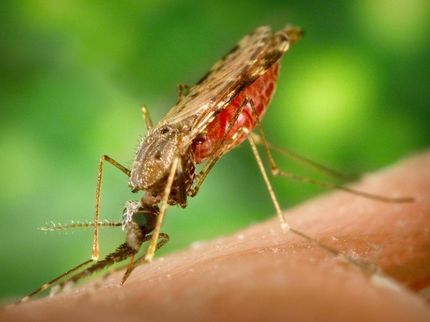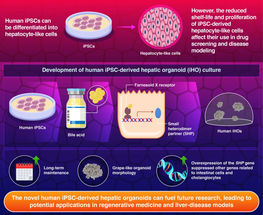Malaria's key survival protein identified, offering drug hope
Walter and Eliza Hall Institute researchers have identified a key protein used by the malaria parasite to transform human red blood cells, ensuring the parasite's survival. Their discovery means researchers have a clear target against which to develop a new class of anti-malarial drugs that destroy the parasite.
Professor Alan Cowman, head of the institute's Infection and Immunity division, said the parasite remodels the red blood cells by exporting hundreds of so-called 'effector' proteins into the cytoplasm of the red blood cell. "These are key virulence proteins that allow the parasite to survive in the human and hide from the human immune system," Professor Cowman said. "There has to be a mechanism that allows these effector proteins to be exported but until now we haven't known what it is."
Dr Justin Boddey, Dr Tony Hodder, Dr Svenja Gunther, Dr Andrew Pearce and Professor Cowman from the institute, in collaboration with Professor Richard Simpson, Dr Heather Patsiouras and Dr Eugene Kapp of the Ludwig Institute for Cancer Research, Professor Brendan Crabb and Paul Gilson at the Burnet Institute and Dr Tania de Koning-Ward at Deakin University, have identified a protein called Plasmepsin V as being essential for effector proteins to be exported into the red blood cell. Their research has been published in the international journal Nature.
Professor Cowman said experimentation had shown that the action of Plasmepsin V on the effector proteins was the first step in priming the proteins to be exported beyond the parasite's membrane into the red blood cell cytoplasm.
"Plasmepsin V is responsible for determining that all the hundreds of effector proteins are exported. If we could find drugs to block Plasmepsin V the malaria parasite would die," he said.
Professor Cowman said because Plasmepsin V was a protease it was an attractive drug target.
Most read news
Other news from the department science

New Label-Free Imaging Tracks Cancer Treatment in Single Cells
One Tool, Many Applications

The evolution of cancer cells decoded
"Our vision is a new type of early cancer detection"

Get the life science industry in your inbox
By submitting this form you agree that LUMITOS AG will send you the newsletter(s) selected above by email. Your data will not be passed on to third parties. Your data will be stored and processed in accordance with our data protection regulations. LUMITOS may contact you by email for the purpose of advertising or market and opinion surveys. You can revoke your consent at any time without giving reasons to LUMITOS AG, Ernst-Augustin-Str. 2, 12489 Berlin, Germany or by e-mail at revoke@lumitos.com with effect for the future. In addition, each email contains a link to unsubscribe from the corresponding newsletter.






















































